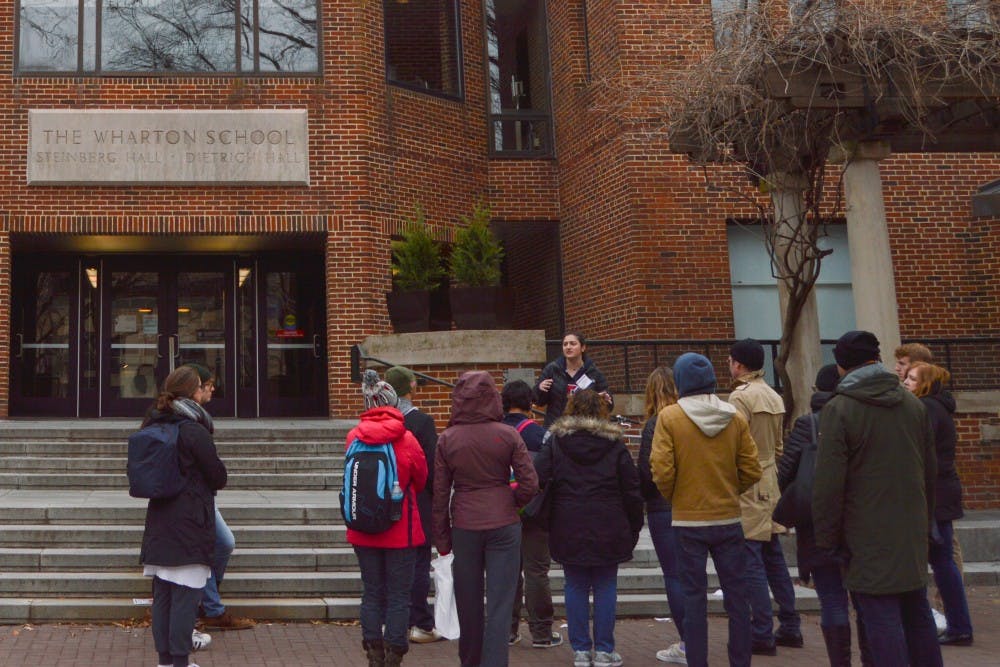The student tour guides of the Kite and Key Society spend hundreds of hours each year welcoming around 75,000 visitors to Penn's campus.
They perform their work without compensation — a fact that is unlikely to change in the near future. At almost every other Ivy League school, however, student tour guides are paid by the university.
Most recently, Brown University announced it would begin paying its student tour guides $11 per hour starting January 2019. The new policy is meant to increase the socio-economic diversity of their guides.
Now, Penn and Columbia University are the only two without plans to pay campus tour guides. Other Ivies pay their guides anywhere between the state minimum wage to well above it.
“If we’re [not] sharing the voices of first-generation students or the voices of students who receive financial aid, I think it’s a missed opportunity,” Logan Powell, Brown's dean of admissions, Powell told The Brown Daily Herald. “There is a need to represent Brown from all perspectives.”
At Penn, President of Kite and Key and Engineering senior Julia DiSalvio said the organization was founded to be be volunteered-based and will continue to be for the foreseeable future.
"We have always viewed ourselves as a student-run, volunteer-based service organization," DiSalvio said. "We don't expect to be paid because we are doing it out of service."
DiSalvio said she has never encountered a student tour guide at Penn who complained about being unpaid, adding that leadership makes the lack of monetary compensation clear during the recruitment process.

Kathryn Bezella, the Director of Marketing & Communications for Penn's Office of Undergraduate Admission, characterized the student tour guides as "highly regarded by our office and an important part of our ability to serve prospective students."
Students can, however, earn money over the summer, DiSalvio said.
Throughout the regular academic year, Kite and Key guides provide campus tours twice a day, five days a week, with each tour lasting approximately an hour and 15 minutes.
There are approximately 150 guides currently in the group, according to DiSalvio, with the expectation that each student guide will lead one tour a week. During September and October, the peak season of college visits, Kite and Key also offers tours on Saturdays.
The group also have an Equity and Access branch that helps admissions facilitate programming for incoming students from underrepresented students. Matteo Geatti, the Equity & Access Chair of Kite and Key, declined to comment.
Concerning the socio-economic diversity of the group internally, while Kite and Key does not track the socio-economic breakdown of its members, DiSalvio said that the group strives to remains as diverse as Penn's campus as a whole.
"There is socio-economic diversity right now, but it is always something that we strive to improve on," DiSalvio said. "Even Penn is always striving to improve its diversity, so we are as well. Our goal is just to match the university demographic."
The group largely recruits new members by emailing groups across campus.
"We literally just spam as many groups on campus possible to make sure that we are truly reaching every corner of Penn and every single perspective."









